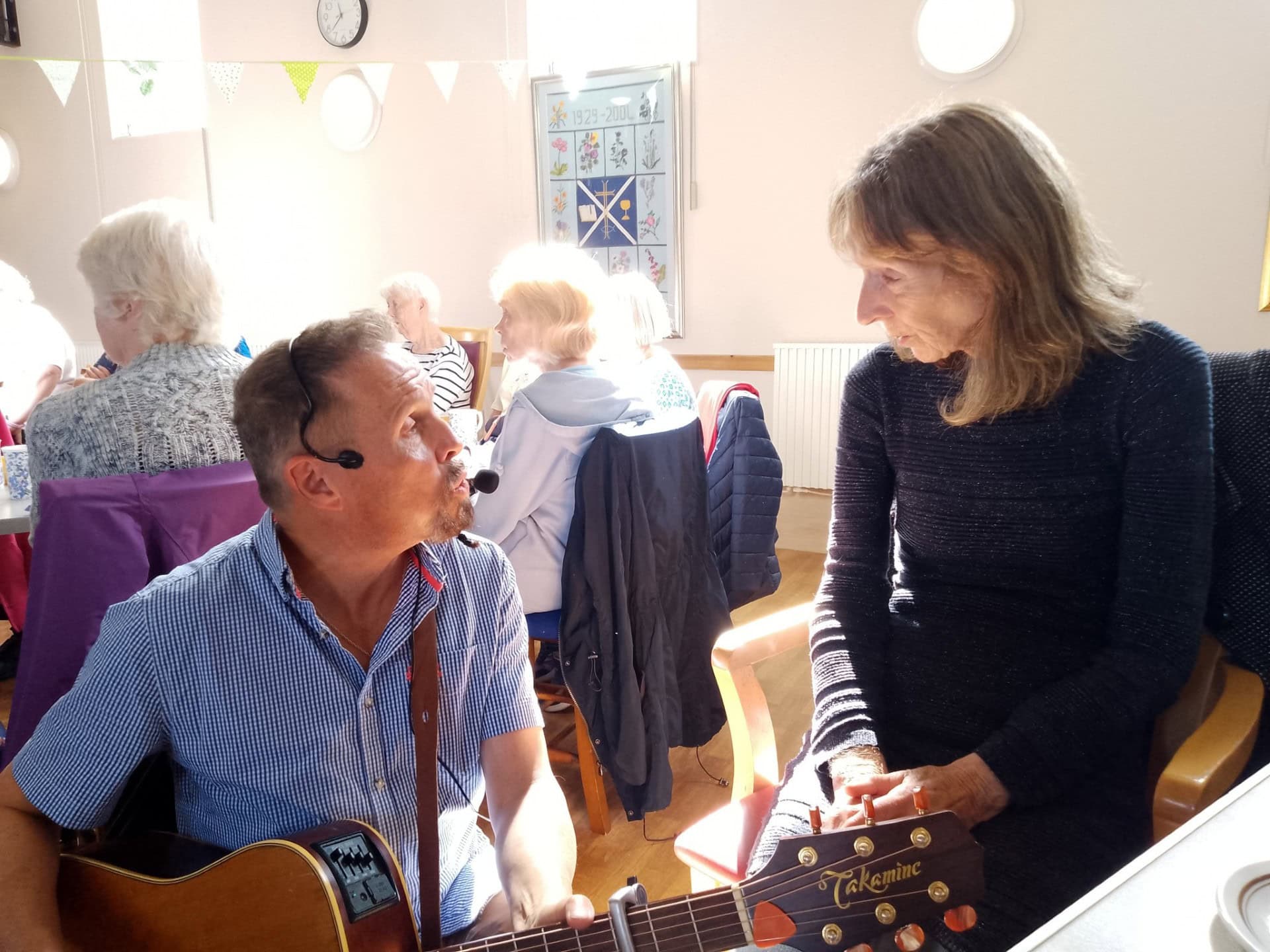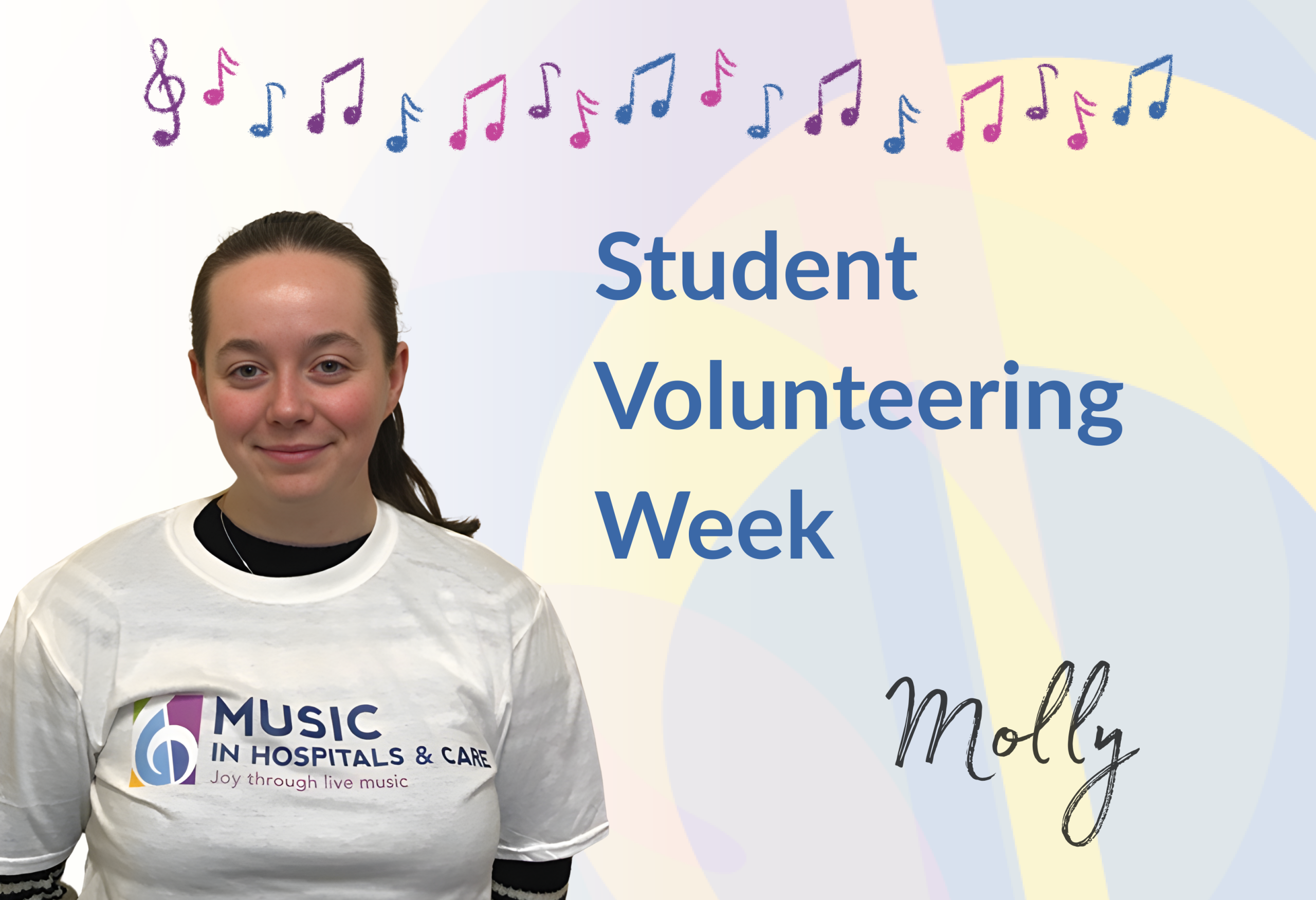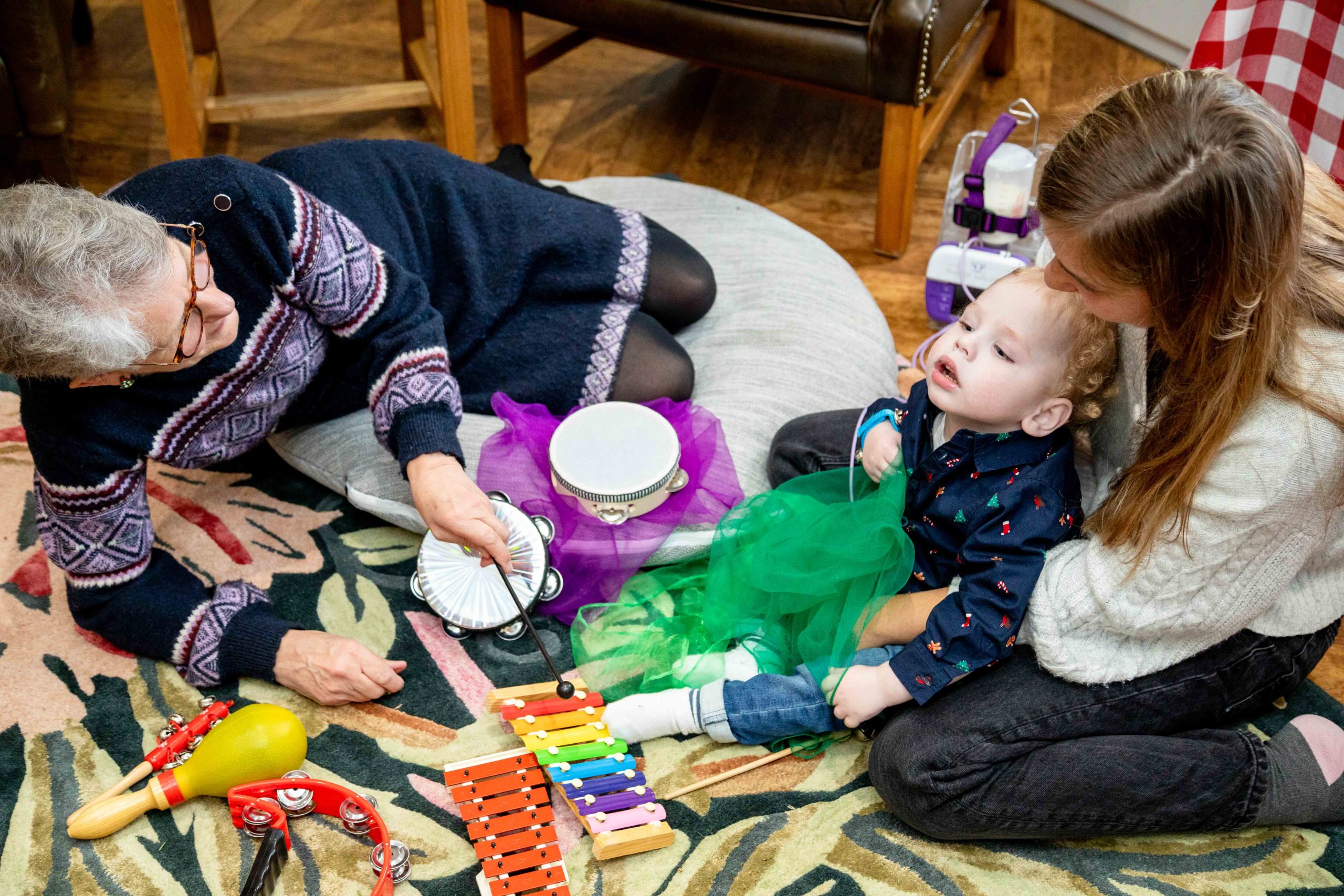
Our talented musicians perform regularly at Murrayfield Memory Lane Café and use the power of live music to unlock emotions, trigger memories, and build a sense of community. Music transforms this dementia-friendly social event into a vibrant hub and helps to reduce anxiety and confusion of people affected by memory loss.
Jenny Rowe, Project Co-ordinator at Murrayfield Memory Lane Café explains:
“I think it’s so valuable to have music accessible for groups like ours who support over 65s living with dementia, those who are frail, elderly and lonely and those who care for them.”
We see first-hand how the music brings the service users together and how people who are often quiet or non-verbal begin to move and engage with others around them. The smallest sway or foot movement to the rhythm shows us that those who perhaps show no other reaction in their face are actually responding to what they hear.
There are also more obvious reactions that we love to see such as those who struggle with their words now suddenly being overjoyed that they remember words to songs and have energetic responses to music playing. Those who can, always tell us how much they love having live music and how much it means to them. We’ve also had relatives come along to sessions alone when they get respite as they say they just want to relax with their friends and enjoy themselves in a break from the hard day to day life which they have.”
Our musician Lissa McIntyre performs regularly at the café. She explains:
“I think live music brings something really special to people with dementia, for some people who are not able to verbalise, this can be a rare moment of connection and belonging when they find themselves able to sing along, making eye contact and smiling as they feel connected to the other people singing with them. It can also help family members who are caring for them if they are able to do this together, reminding both of all the special times they have shared, and the music associated with these happy memories.
During one performance, a lady came up and hugged me spontaneously after the performance was finished. I had noticed that she left the room during O Danny Boy, and I said to her, ‘I’m sorry if that song was upsetting for you’. She replied ‘So many of the songs you sang today were really special to my husband and I, and they hold many happy memories. I cremated him yesterday. Thank you for the memories.’”
Music can ease anxiety and depression in people living with dementia. It can also help them think more clearly, communicate more easily, and recall memories. Research shows that after participating in a music activity, people with dementia become more vocal, more social, and more eager to communicate.
Last year alone, we visited 164 different dementia settings, sharing 154 hours of live music in hospital wards, 420 hours in care homes and 118 hours in the community. Staff reported that 100% of patients and residents experienced music that reminded them of their past, and 86% expressed themselves more.
With one in 14 people over the age of 65 currently living with dementia in the UK – an estimated one million people – and one in two of us likely to either care for a loved one with dementia or develop it ourselves, our work is more crucial than ever.

Kindness in harmony at Companies House
This Random Acts of Kindness Day, we are celebrating the Companies House choir in Cardiff, which brings colleagues together to boost wellbeing and raise funds for Music in Hospitals & Care.

Student Volunteering Week: Molly
It’s Student Volunteering Week, and we’re celebrating the important role student volunteers play in helping us share the joy of live music with communities across the UK.

Children’s Mental Health Week: Reuben’s Retreat
We’ve been sharing the joy of live music with children, their families and staff at Reuben’s Retreat in Glossop. The sessions are designed to soothe and support children with life limiting illnesses and offer an opportunity for families to connect with others who understand their experience.